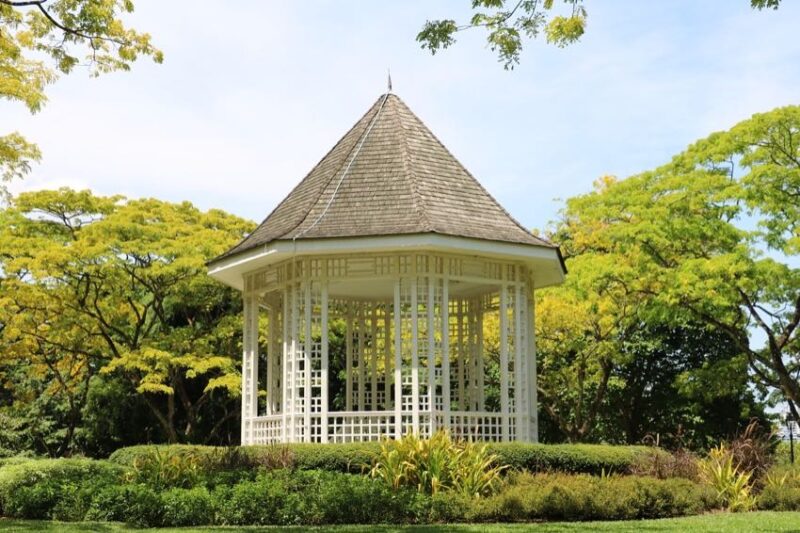Hiring a Landscaper Can Beautify Your Lawn, But Choose Carefully
While some like to do their own landscaping, it can get challenging really fast. If you find yourself getting in over your head, knowing how to hire a landscaper can save you a lot of hassle. If you, like many homeowners, find yourself deciding to bring in a professional landscaper to start or complete a job, we have 12 things you need to know to ensure everything stays on track.
Table of Contents
- Hiring a Landscaper Can Beautify Your Lawn, But Choose Carefully
- 1 – When You Should Hire a Landscaper
- 2 – Present a Clear Vision and Keep Your Mind Open
- 3 – Check Their Resume
- 4 – Ask How Long Your Landscaper Has Been in Business
- 5 – Hire a Landscaper That Provides Drawings
- 6 – Understand the Required Equipment
- 7 – Pay for a Thorough In-Person Estimate
- 8 – Hire a Landscaper That Stays on the Job Through Completion
- 9 – Ask If the Landscaper Staffs Specialists
- 10 – Check Your Landscaper’s License
- 11 – Is the Landscaper Bonded and Insured ?
- 12 – Put Everything in Writing!
- Parting Thoughts
1 – When You Should Hire a Landscaper
Knowing when you should hire a landscaper precedes the question of how to hire one. Begin by understanding what you want your project to accomplish.
Are you trying to spruce up the yard a bit, maybe with some planting, fertilizing, and mowing? Or do you want to get into a much larger project that involves design and installation work? Are you looking for weekly or monthly work, or do you need a Pro for a one-time project?
If you don’t absolutely love landscaping and have a large project, it may be time to hire a landscaper. Anything taking several weeks (for you) to accomplish can get increasingly frustrating over time.
2 – Present a Clear Vision and Keep Your Mind Open
Before you jump into the hiring process, it’s best to know what you do and don’t want. Be specific. You may want a pergola off to one side of your back lawn. Will you cover the base with pavers? Knowing how to hire a landscape also involves knowing that a real Pro may bring along great ideas. Keep yourself open to these ideas but be prepared to let whoever you hire know what areas you really want to lock down.
In short, learn to clearly define the “must-haves” and stay open about the things you may not be so certain about. When you hire a landscaper that brings a lot of experience you want to use it!
one of the benefits of hiring a landscaper is that they’ll have their own ideas about how to beautify your space, and they might have some fresh ideas you might not have considered. It’s fine to let them work some magic, but if there’s an idea or two that you’re not into, or can’t afford to get into, it’s best to already have an idea of what you’ll say no to.
Speaking of what you can or can’t afford, what is your budget for this project? Having a firm answer to this question will keep you from getting into a project that’s out of your price range.
3 – Check Their Resume
Our number one rule about how to hire a contractor involves picking someone who demonstrably does great work.
Do your research. Hiring a landscaper without looking at the work they’ve done makes for a lot of uncertainty. Research usually takes the form of shopping around, looking at portfolios, and checking reviews.
When it comes time for a consultation, make sure you ask the right questions. We’ll get to those next.

The questions you should ask the landscaper or landscaping company can help you decide who to hire. Most people worry about communicating the details of their particular project. That’s important. However, before that, we think you need to know who exactly you’re hiring.
4 – Ask How Long Your Landscaper Has Been in Business
For the most part, you want to hire a landscaper with experience. A company with lots of work under its belt knows how to manage projects efficiently, staff properly, and be realistic about everyone’s expectations.
On the other hand, newer, younger companies might have fresh ideas and be willing to do the work for less. In both cases, ask for references and see if you can go take a look at some of their work. This is especially critical for larger projects. In fact, the larger the project, the less likely I’d want to go with an inexperienced company.
5 – Hire a Landscaper That Provides Drawings
Get drawings. They provide one clear way to ensure you and your landscaper stay on the same page. Any project can generate some misunderstandings. Either party can inadvertently raise false expectations.
Drawings reduce the likelihood of this occurring in any significant way. Having the opportunity to see the landscaper’s vision for your project helps everyone understand each other.
6 – Understand the Required Equipment
What equipment is your landscaper planning on using? What materials will they build with?
We’ve seen homeowners get upset when they hire a landscaper and they arrive with heavy equipment. This can tear up the lawn in one area to accomplish a project in another. Most landscaping companies have standard procedures in place regarding equipment use. Most understand how to care for properties. Still, have them inform you of what they intend to use if you need concrete or block delivered to a centralized area of your property.
7 – Pay for a Thorough In-Person Estimate
As you shop around, get at least three written estimates from different companies.
Keep in mind the old adage: “Fast, cheap, or good: pick two.” We recommend making “good” one of your two choices.
Speaking of getting written estimates, avoid landscapers that quote you a price without actually looking at what you need. Hire a landscaper who takes measurements and considers what the job entails before giving you a written quote.
For really involved projects, expect to pay for the time it takes to create a sophisticated bid. It doesn’t need to cost an arm and a leg, but a reasonable fee makes sense for larger projects.
A thorough estimate with measurements and quantities takes time and know-how to create. Most professionals don’t want to hand those over without a fee so you can shop around for the cheapest price from a competitor who now doesn’t have to do the groundwork!
8 – Hire a Landscaper That Stays on the Job Through Completion
Your landscaper has more than one client. Your supervisor and even employees may need to travel between jobs through the project time period. While you can’t expect 100% attention all the time, ensure your project stays managed at all times and you have a point of contact for any issues that arise.
For example, your landscaper might leave the project half-finished to start another one. During that time period you need a way to contact them should inclement weather produce damage or begin to erode something that hasn’t yet established itself.
Other issues involve a project manager leaving part of a crew to work unsupervised. While not necessarily a problem, you want to have a clear line of communication should anything arise that needs attention.
9 – Ask If the Landscaper Staffs Specialists
If a big part of your project revolves around trees, you want an arborist as part of the team. Planning a gazebo? You want someone with construction experience.
Our point? Make sure you hire the right landscaper or landscaping contractor to handle your particular job. Plenty of Pros want to do the work, but you want a team that fully understands the details.
10 – Check Your Landscaper’s License
Follow up with the state to make sure the landscaper you plan to hire has all his licenses in order. Also, check for proof of worker’s compensation . You’ve may have asked about all of this during your initial consultation, but you may want to best to double-check with a third party.
The reason for this is that if something goes wrong, or someone gets hurt, an unlicensed and uninsured contractor won’t be subject to certain complaints you could file. Ultimately, you want these things in place for your own protection.
11 – Is the Landscaper Bonded and Insured?
Similar to the above, ask your landscaper if the company is bonded and insured. You want to ask this of anyone you plan to hire to work in and around your home. In today’s lawsuit-happy culture, you need to protect yourself.
Also, does the landscaping company plan to guarantee their work in any way? Most reputable contractors will guarantee their work from anywhere between 2 to 5 years. Warranties for plants might be a different story, but check and see what the landscaper you want to hire offers.
12 – Put Everything in Writing!
Get all the details of the job in a written contract. Include start and completion dates to a listing of all costs and fees for materials and labor.
Ask your contractor to provide you with a lien waiver. This keeps you from being obligated to pay the supplier after you’ve already paid your landscaping contractor in full. Your landscaper should pay the supplier, with the supply costs covered in the total sum of what you’re paying your contractor to do the job.
Essentially, a lien waiver functions as a receipt, which provides evidence that payment has been made. It protects you from being double charged for the supplies and materials to get the job done. This is an especially good idea when you’re getting into your larger projects.

Finally, read your contract thoroughly before signing it, and make sure that there aren’t any blank spots on the page.
Parting Thoughts
It’s generally a good idea to be around when work is going on. It’s not that you need to hover over your landscaper while he or she works (and you shouldn’t), but if you see something happening that you didn’t originally contract for, you can call a stop to the operation. Again, this is more for larger jobs.

Finally, be mindful of the rule of thirds. If you’re contracting major landscaping, consider paying a third of the final total upfront to secure the work. Pay another third at the halfway point. The final third should get settled when the job completes and you’re happy with the work.
If you have any other helpful insights for hiring a landscaper, feel free to leave comments in the section below!





